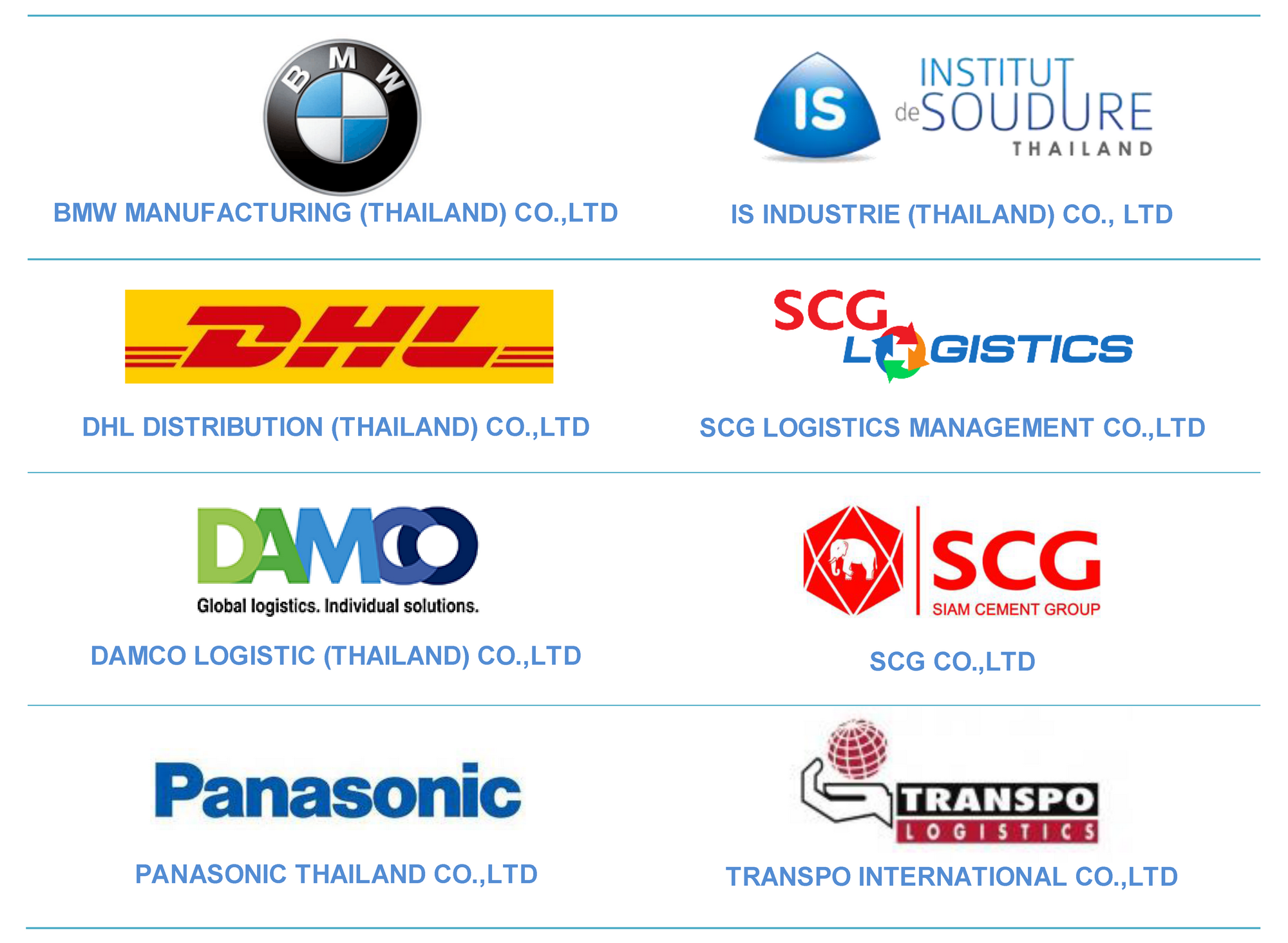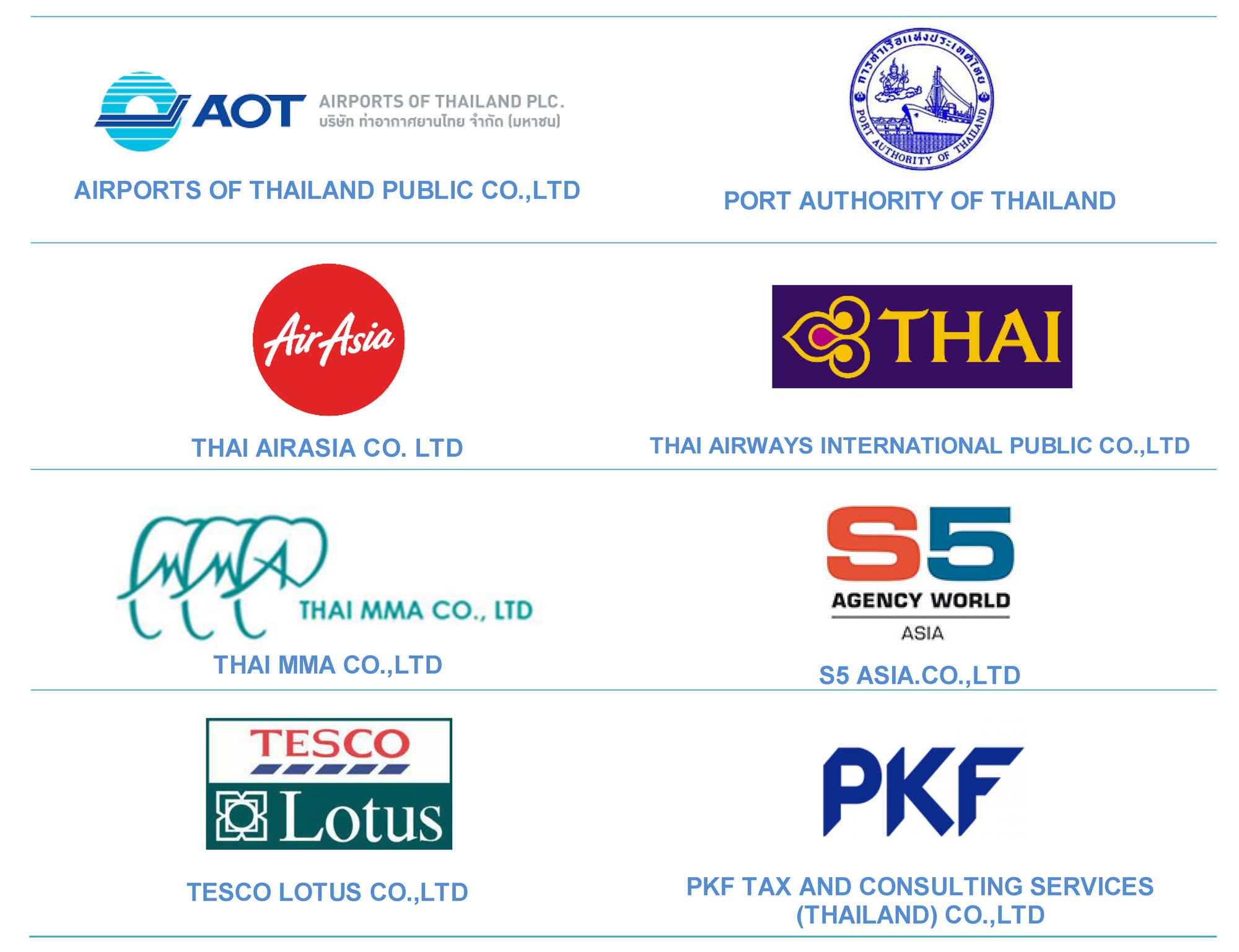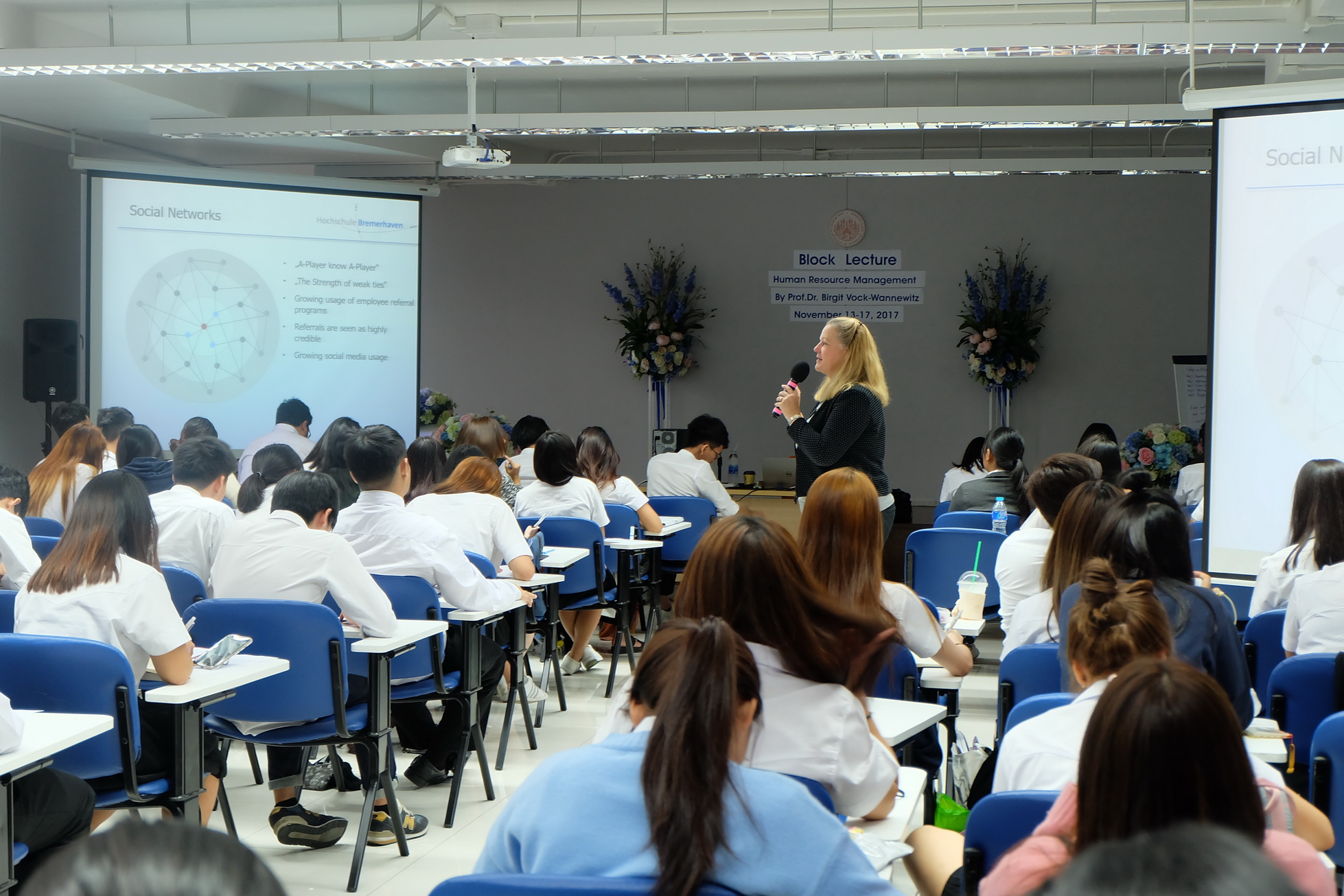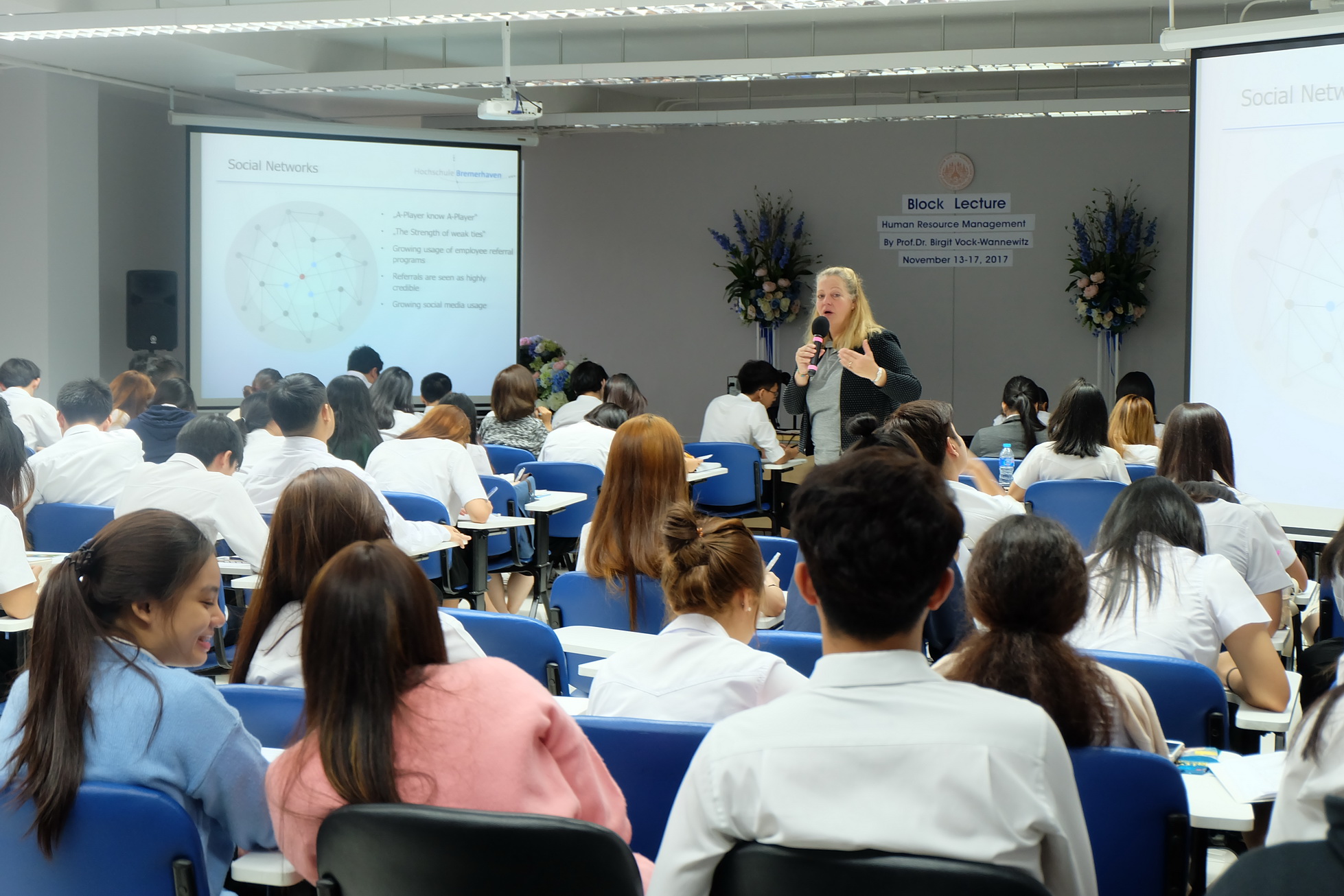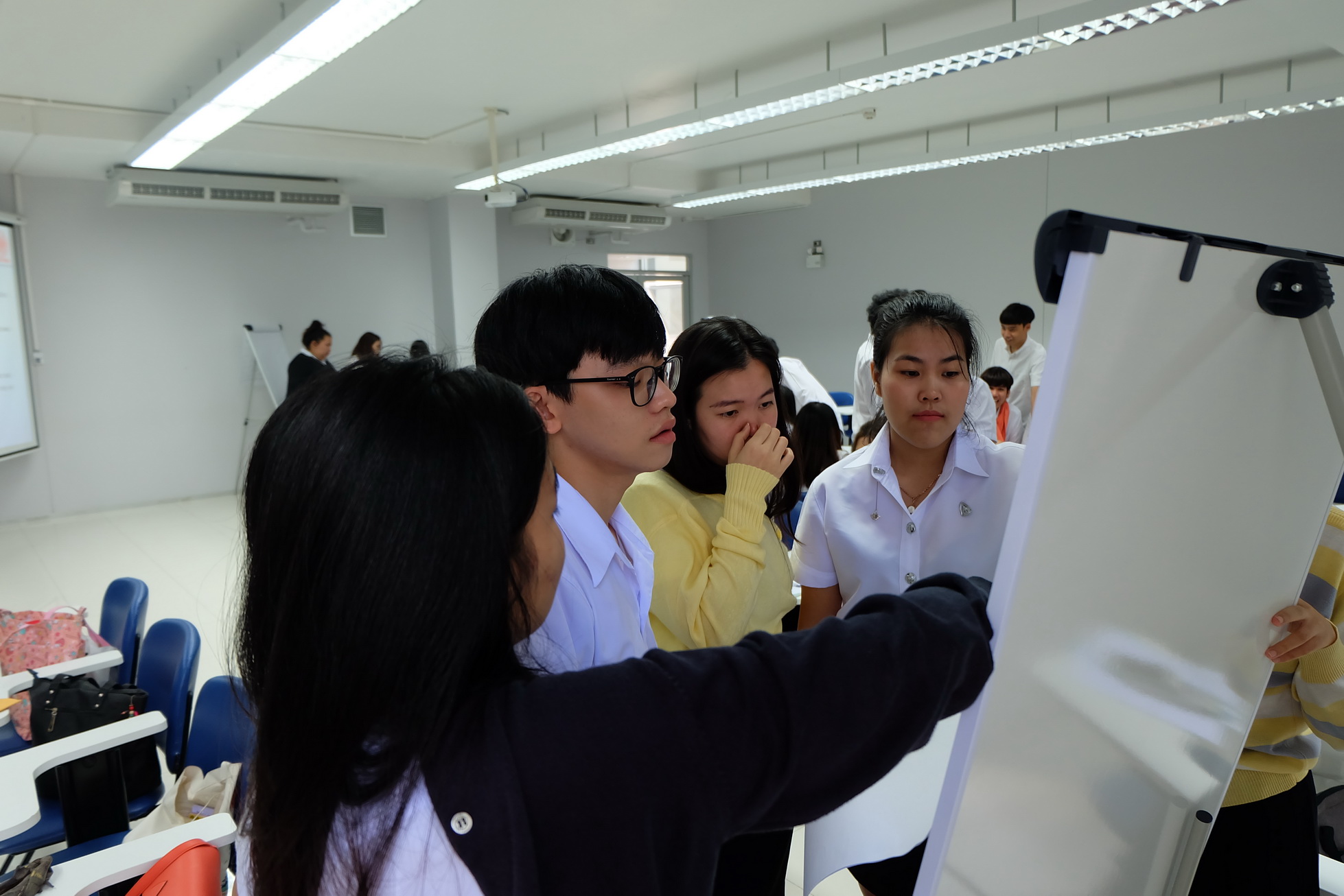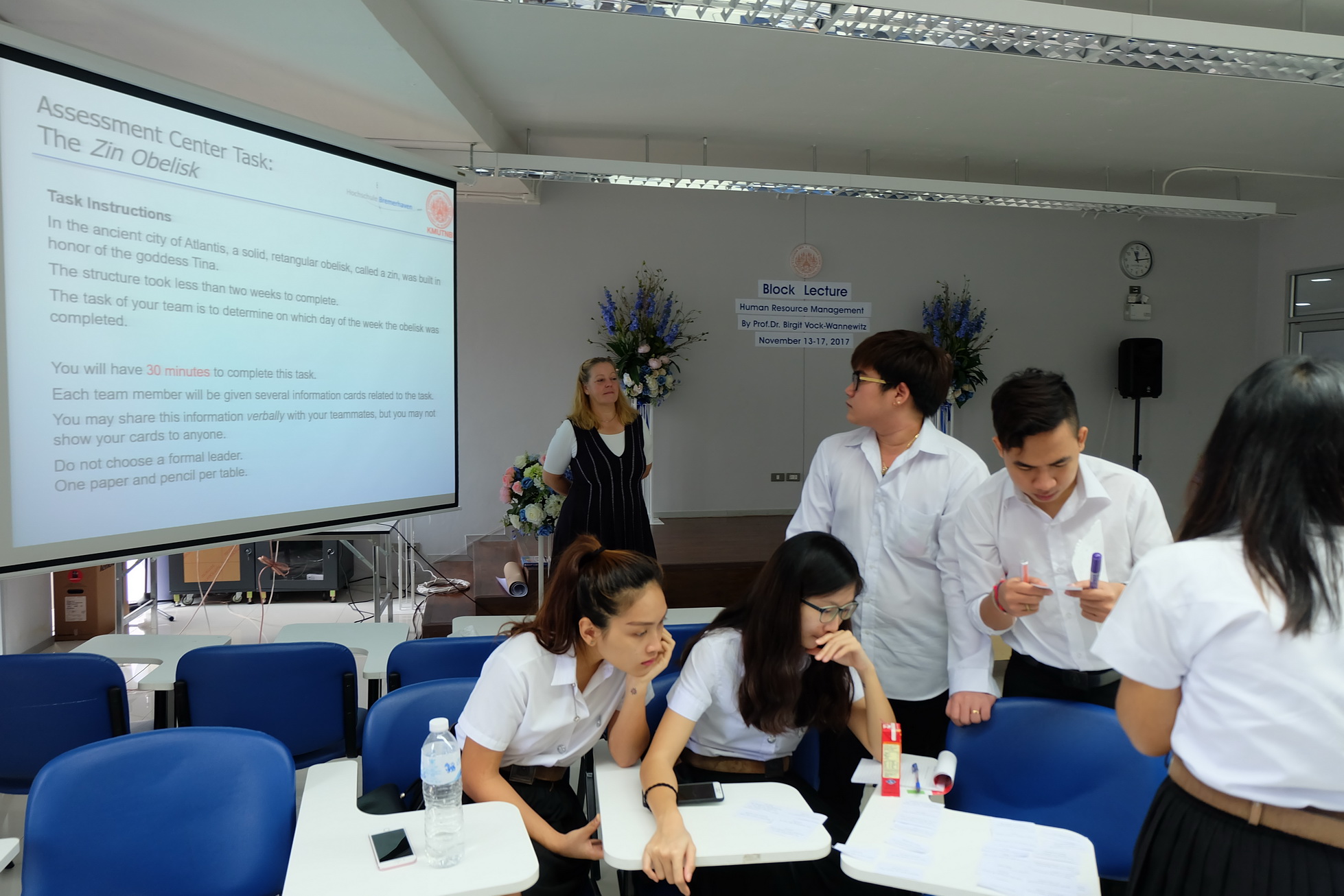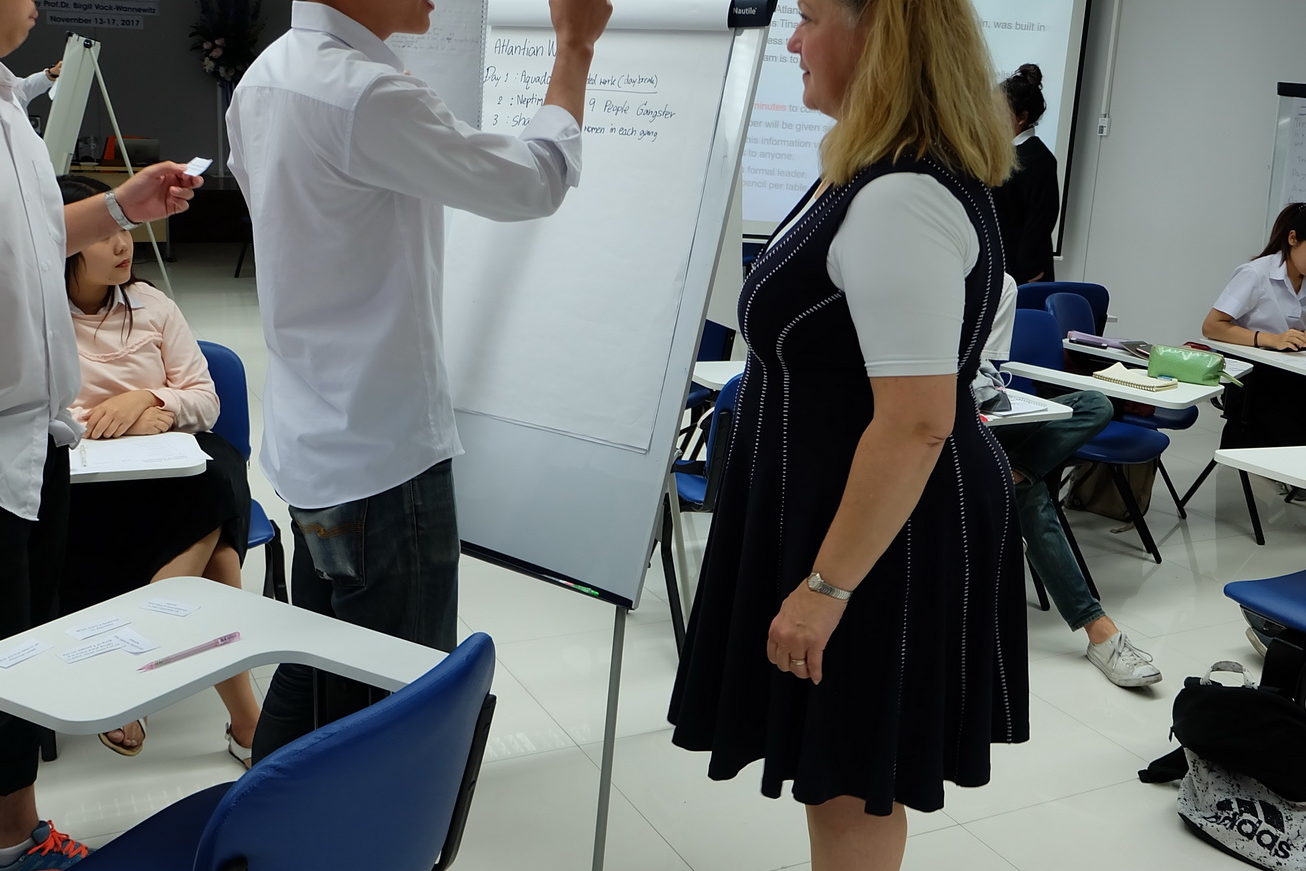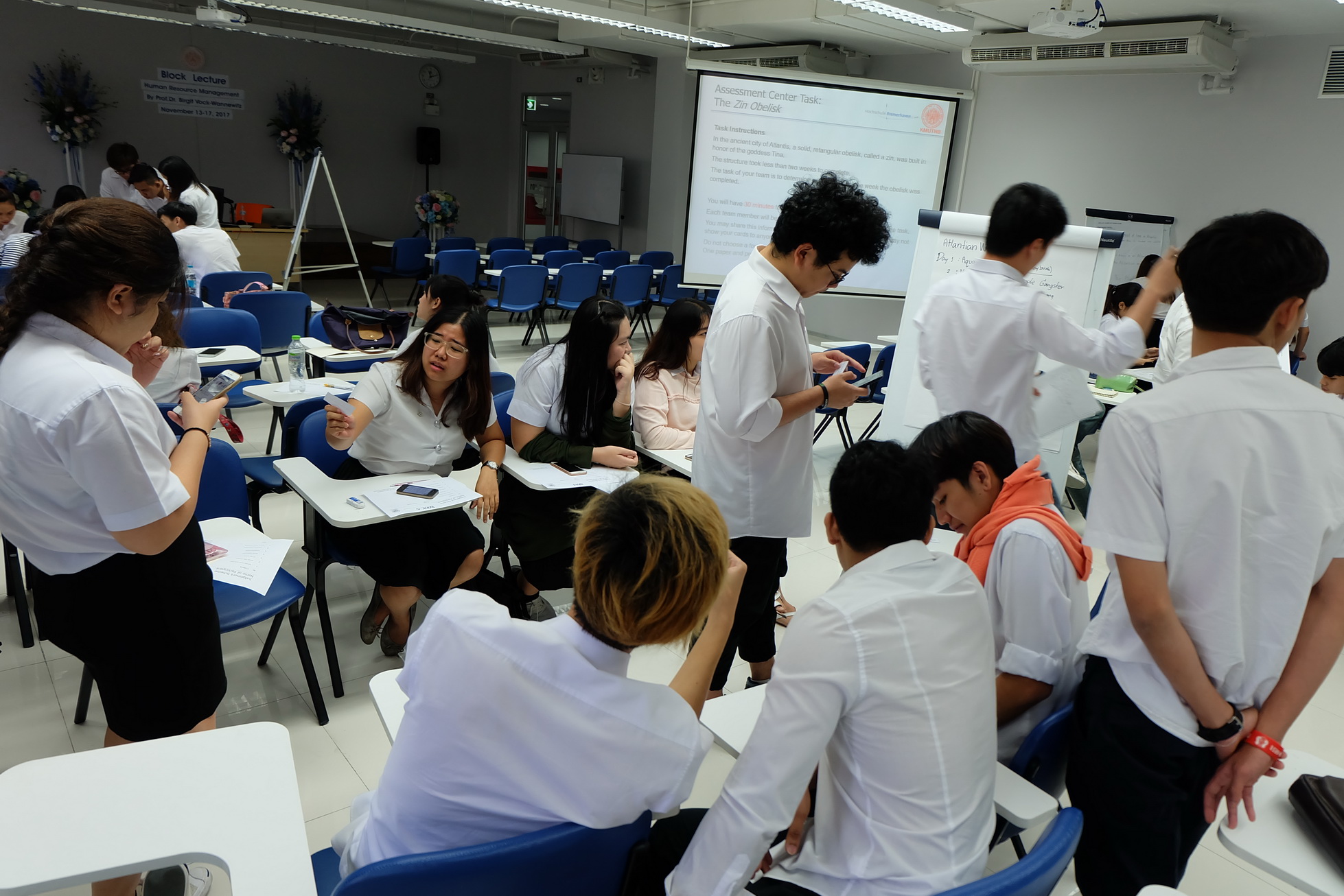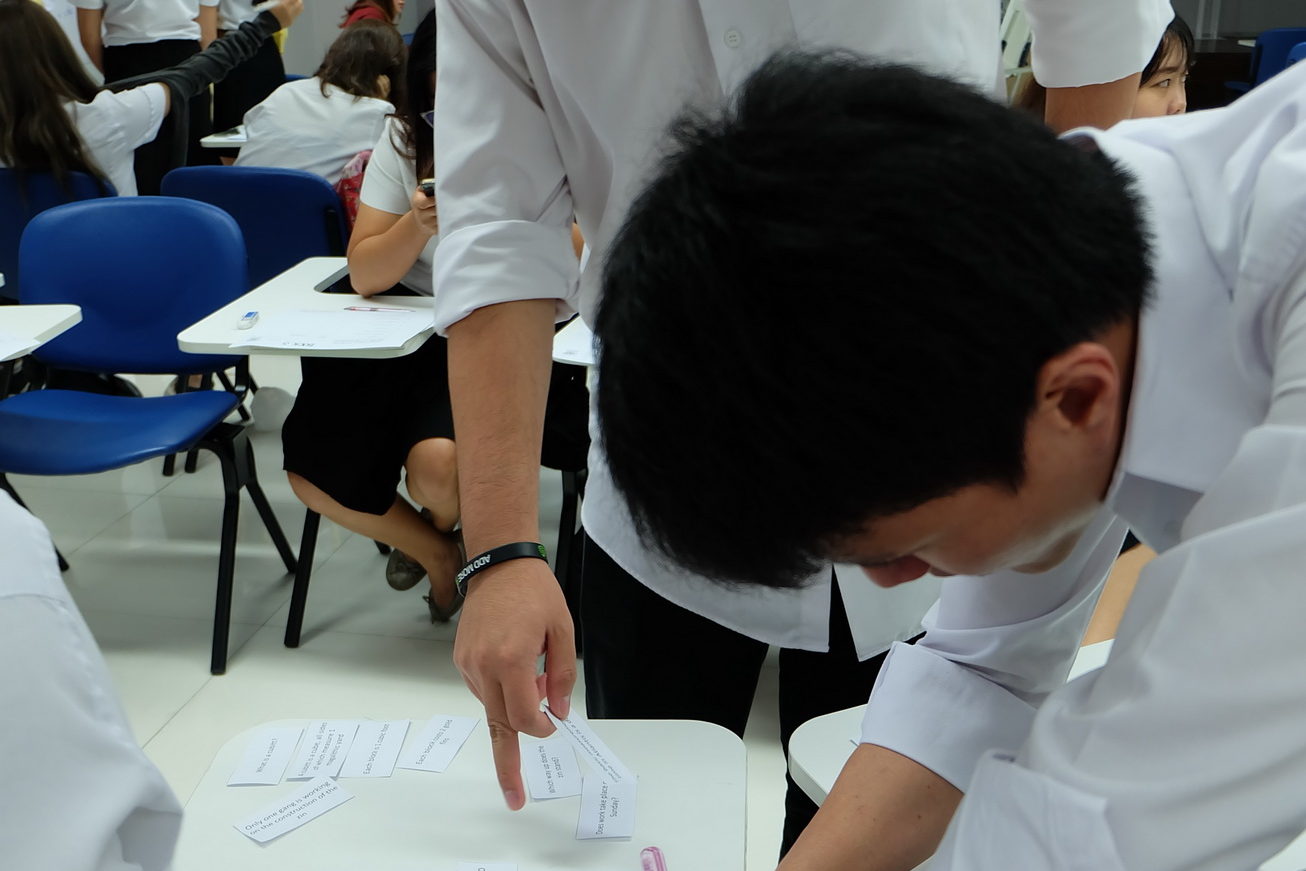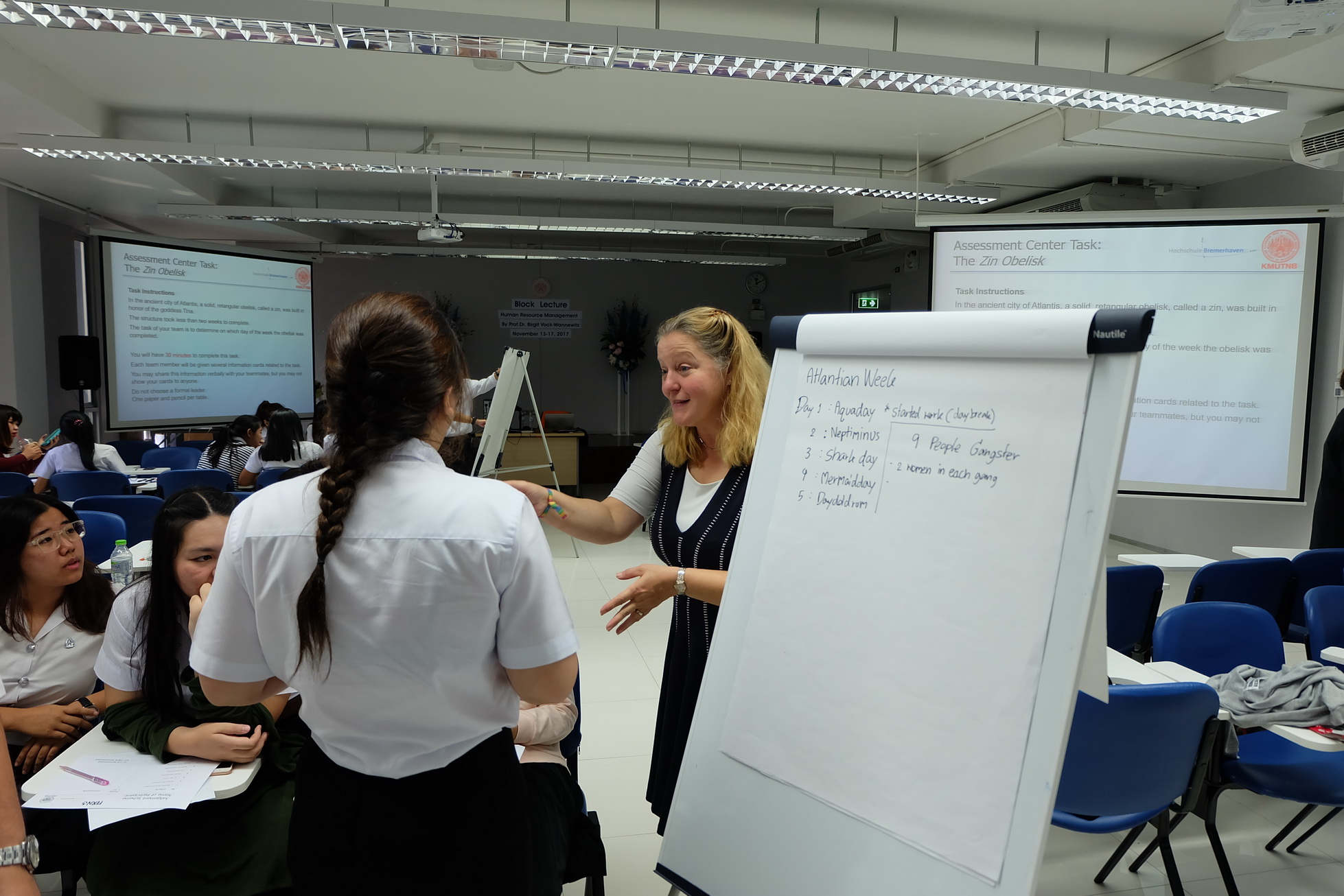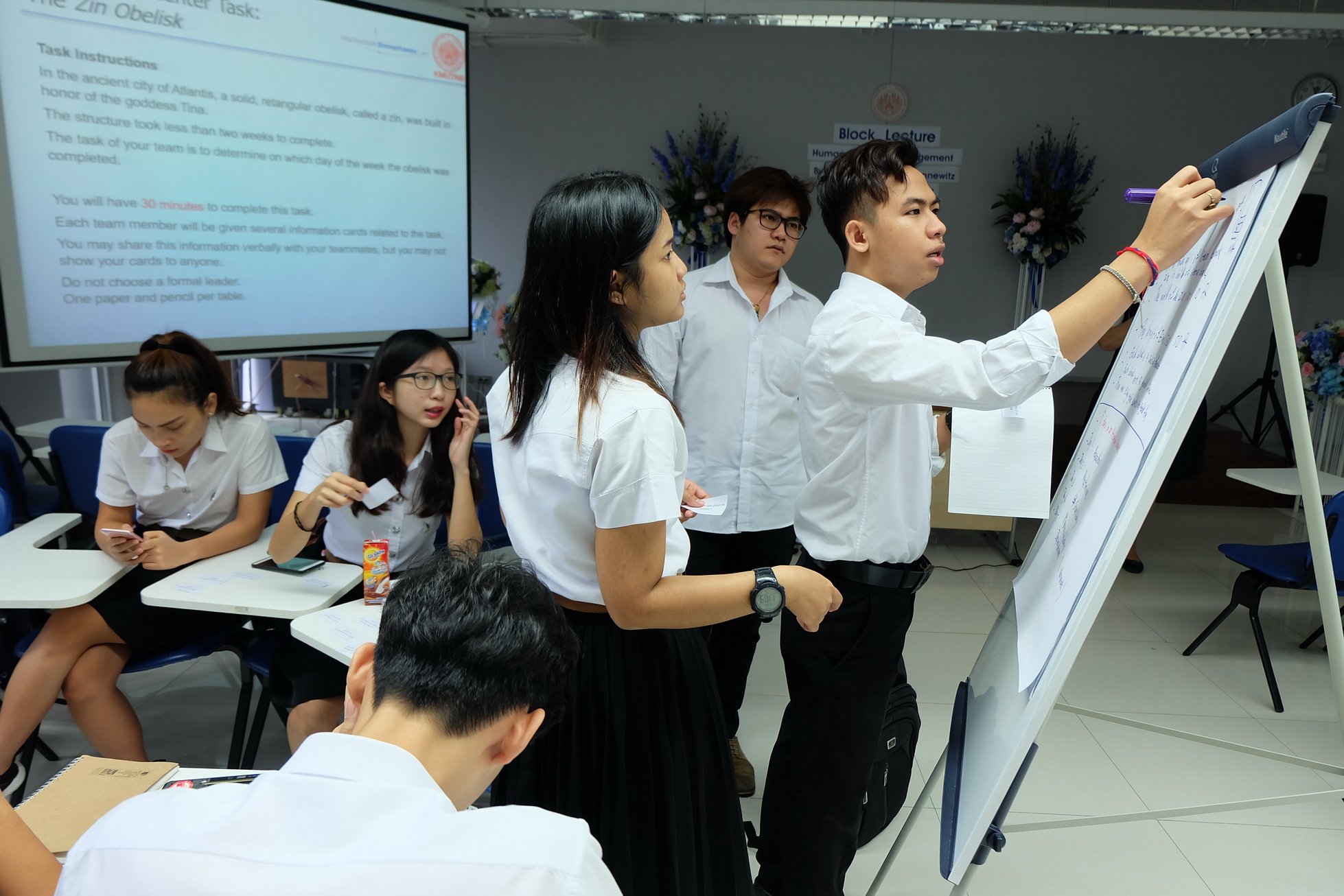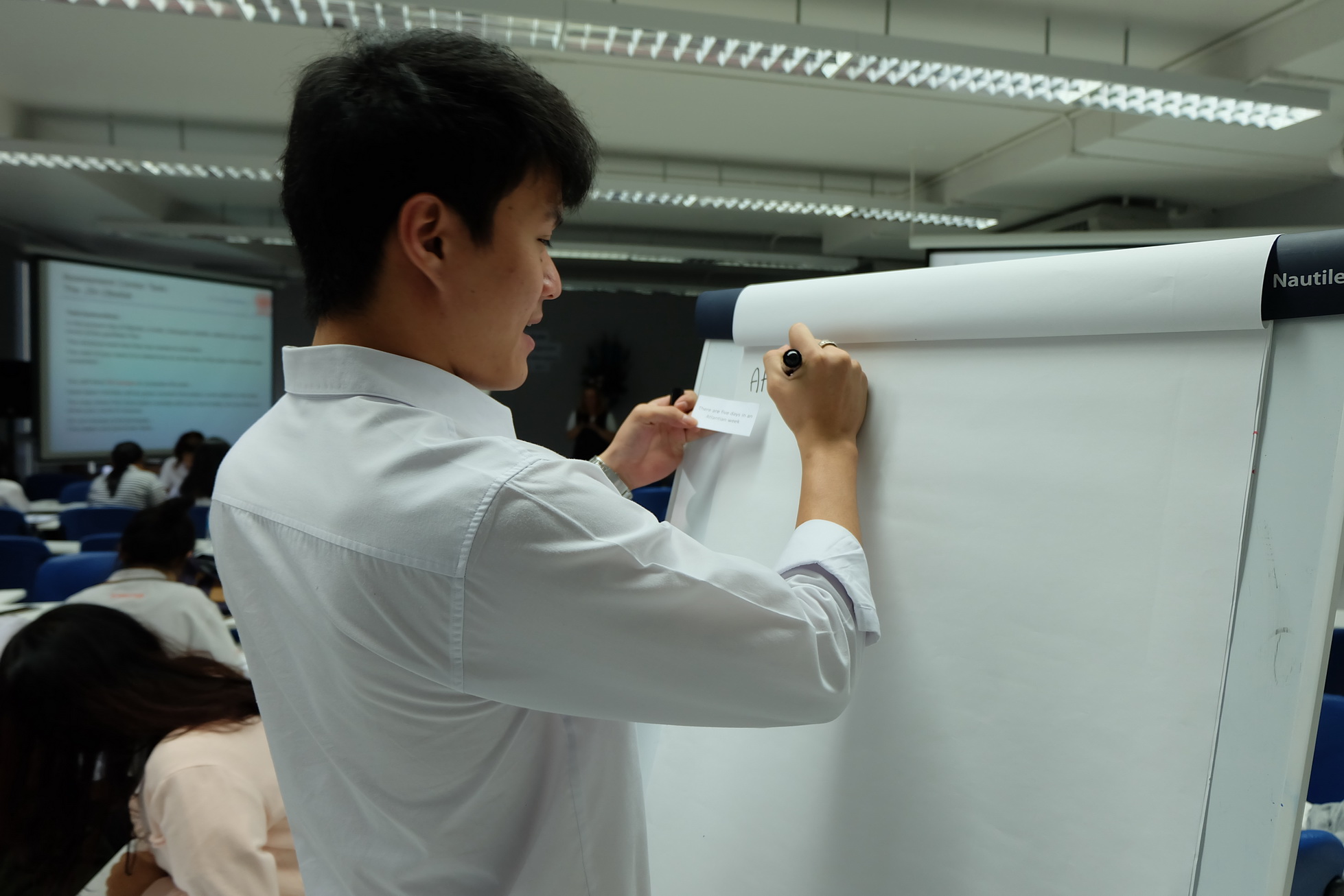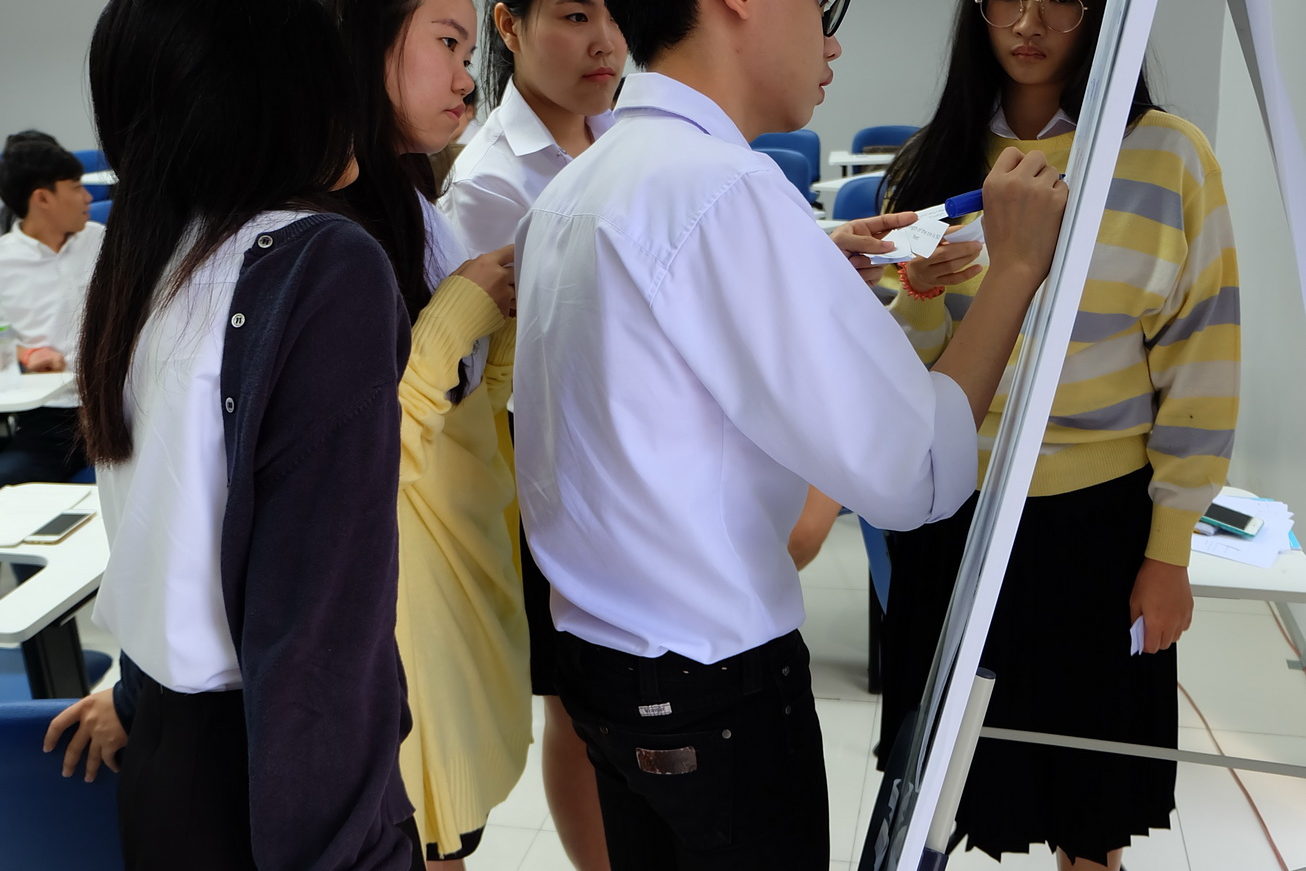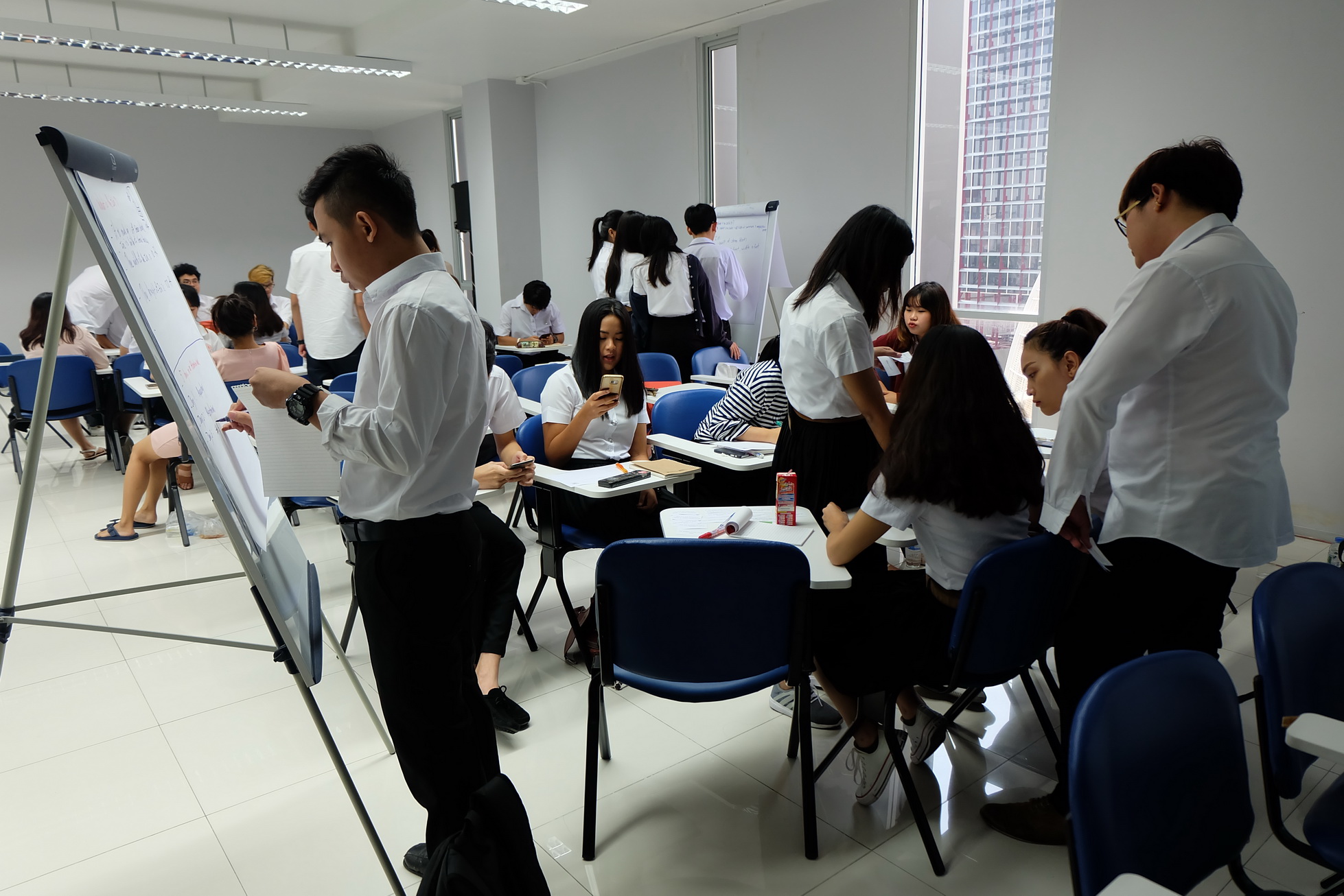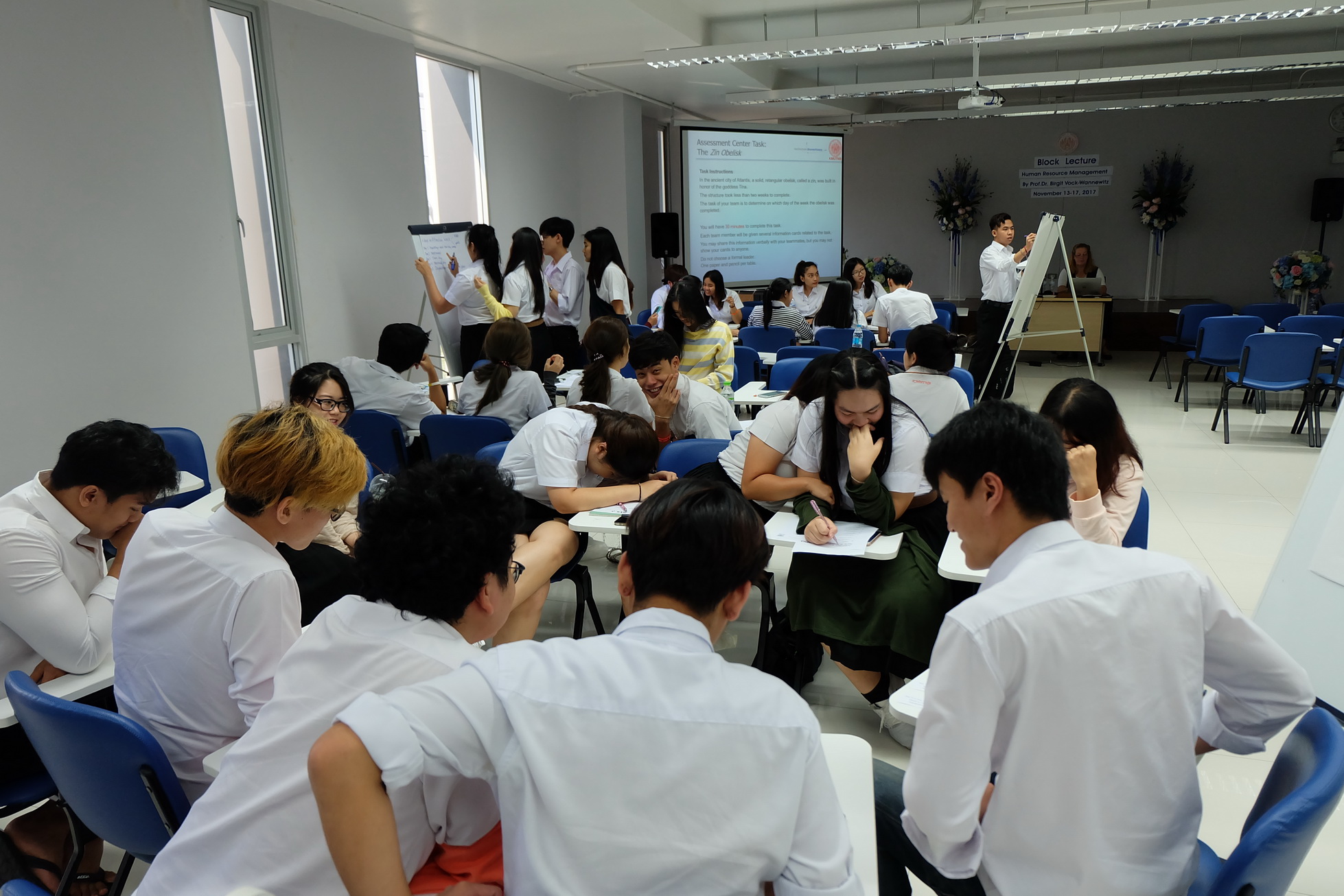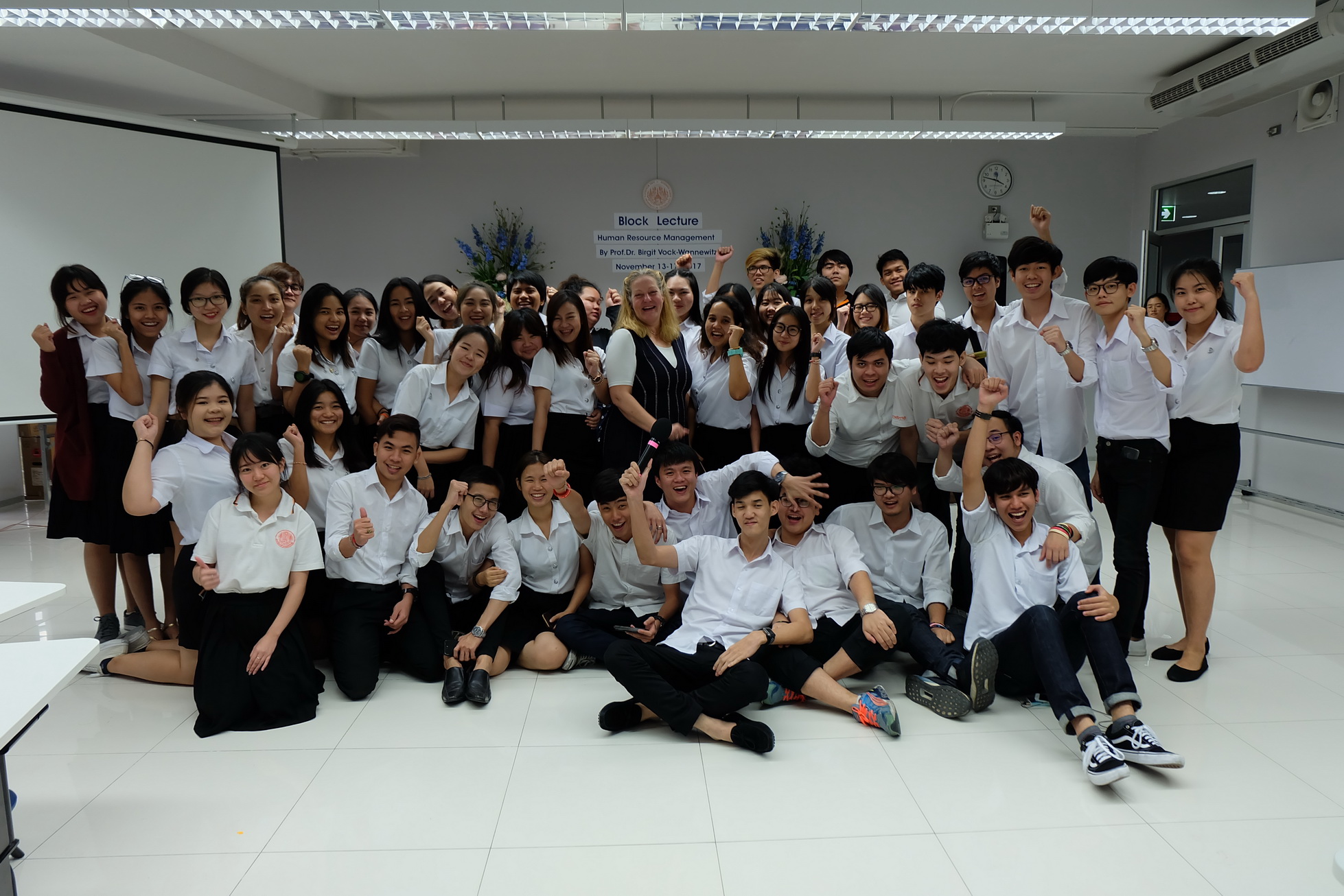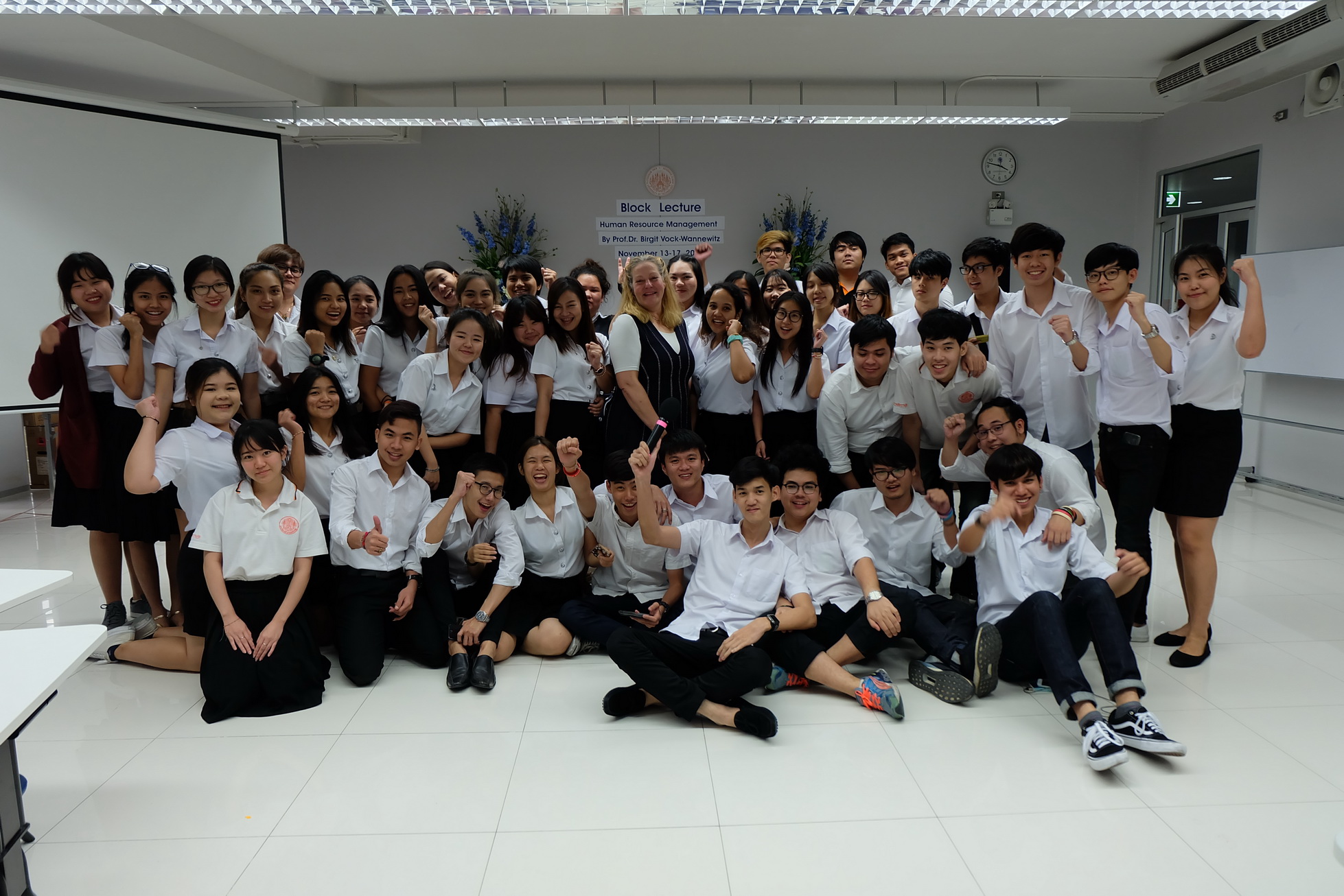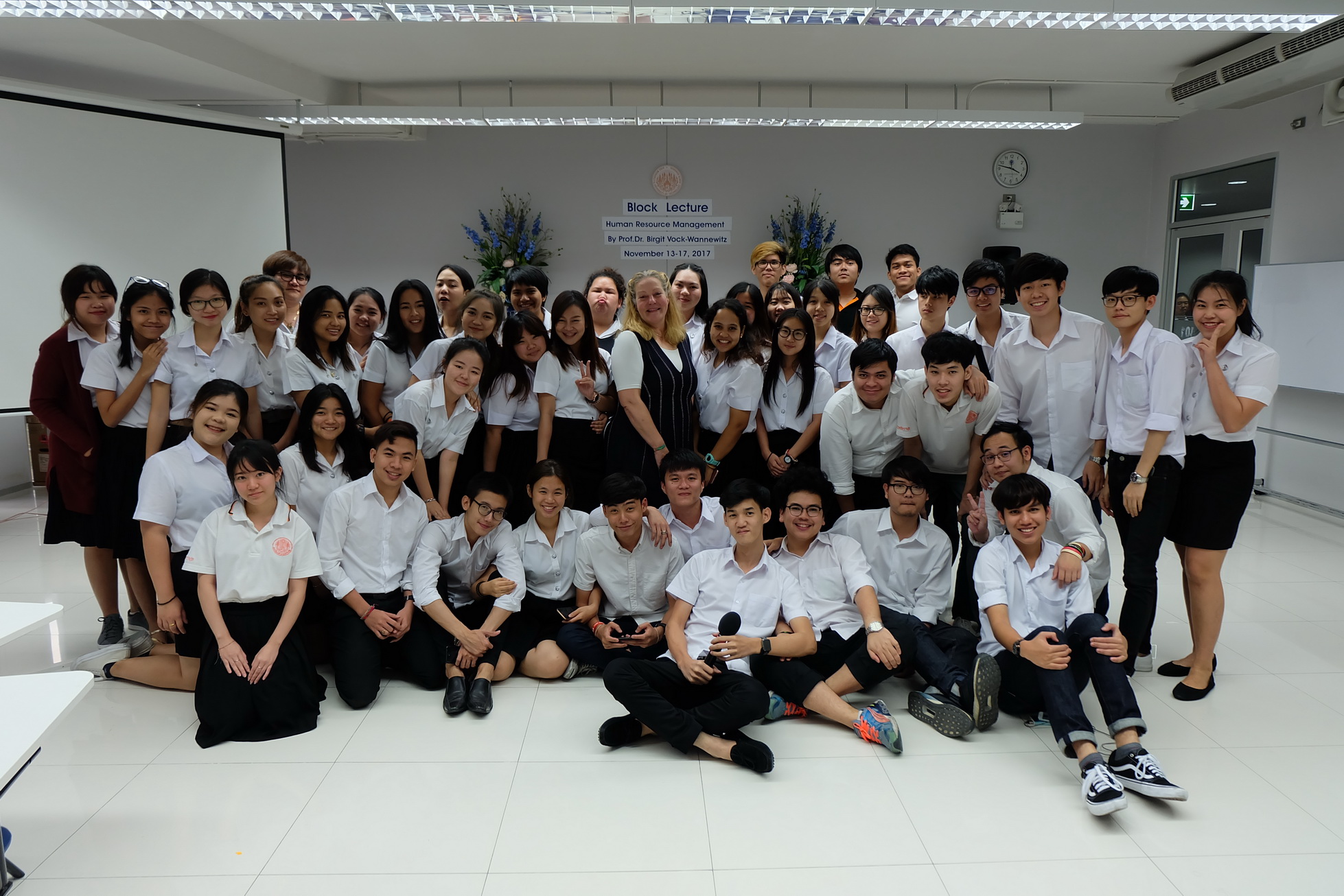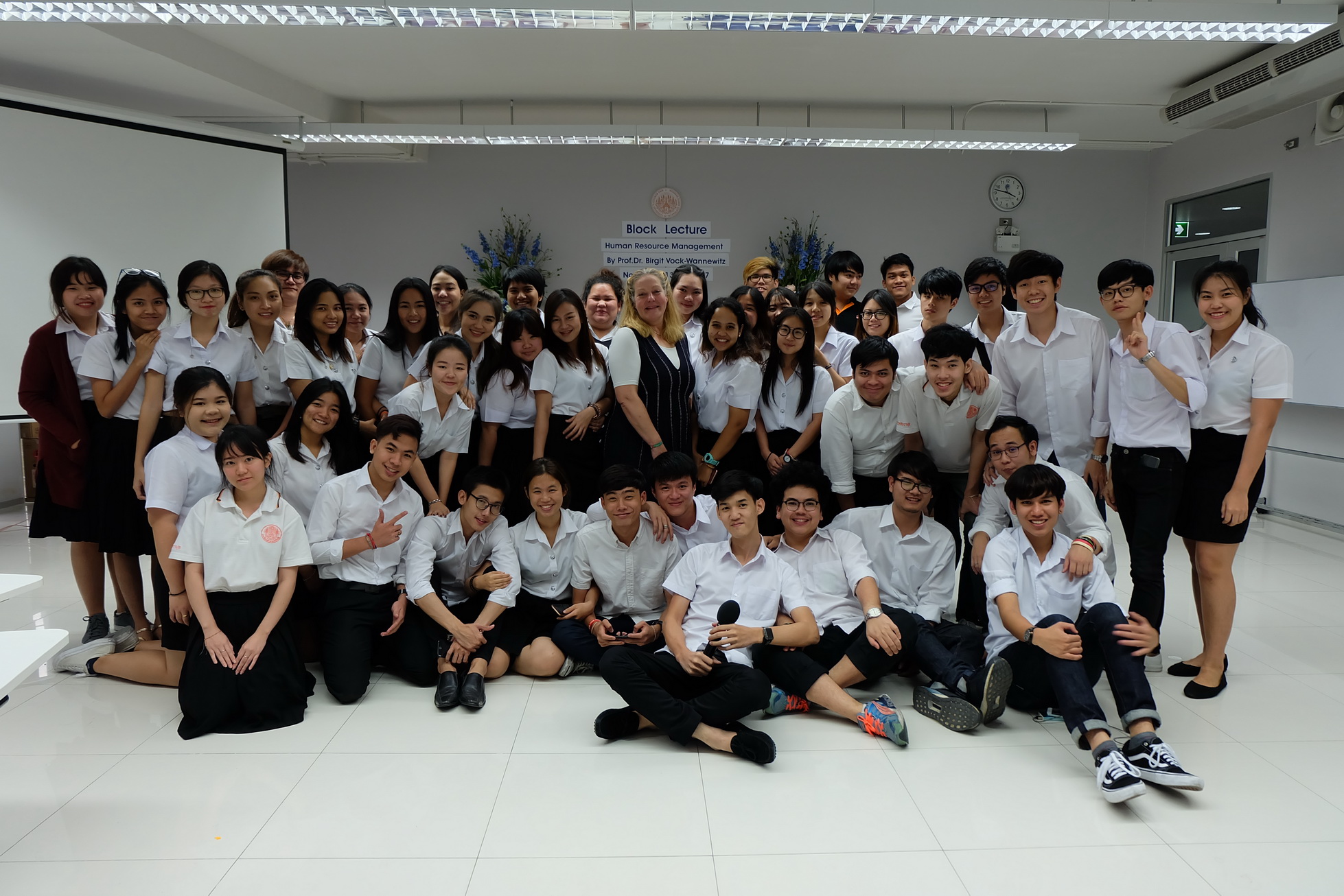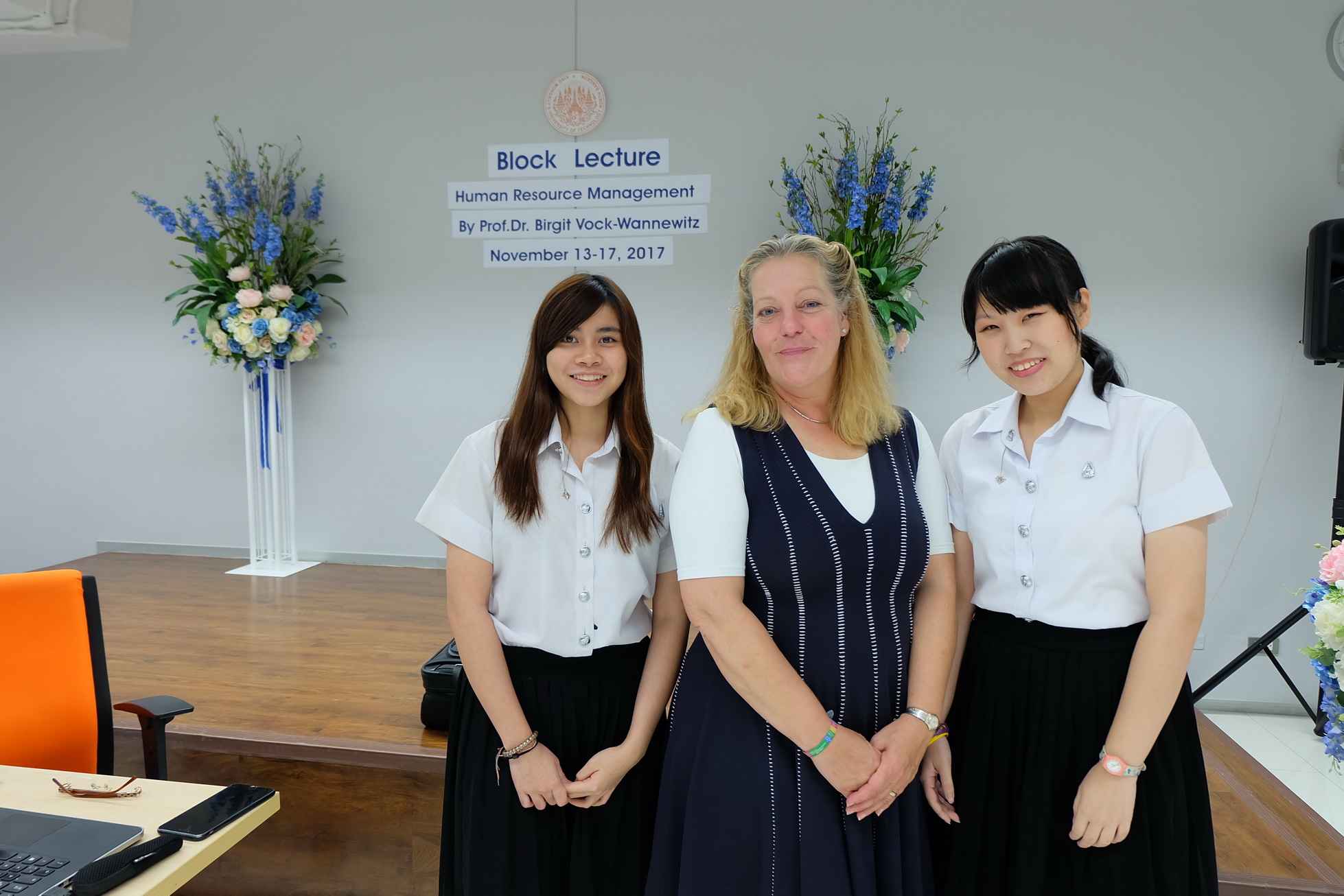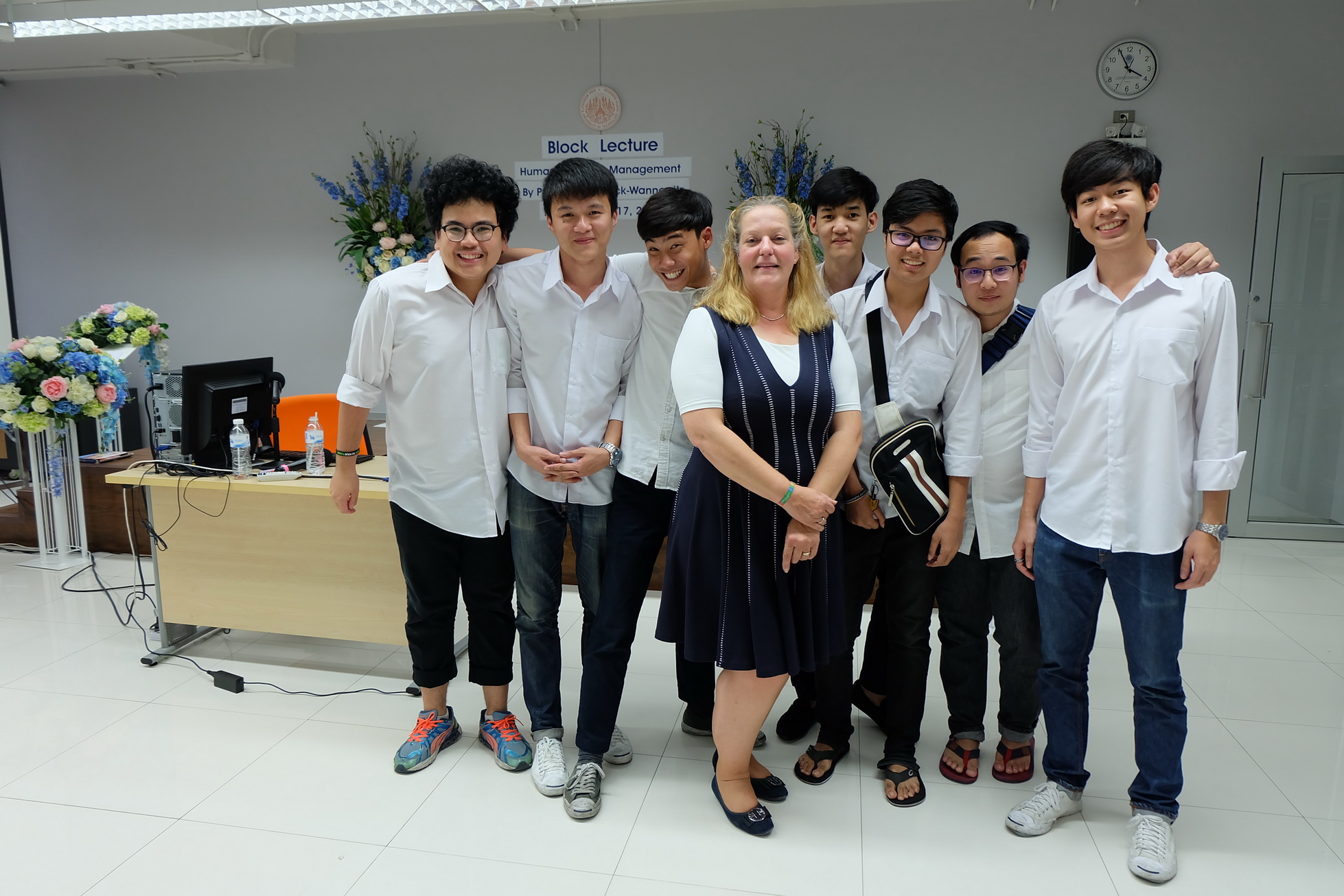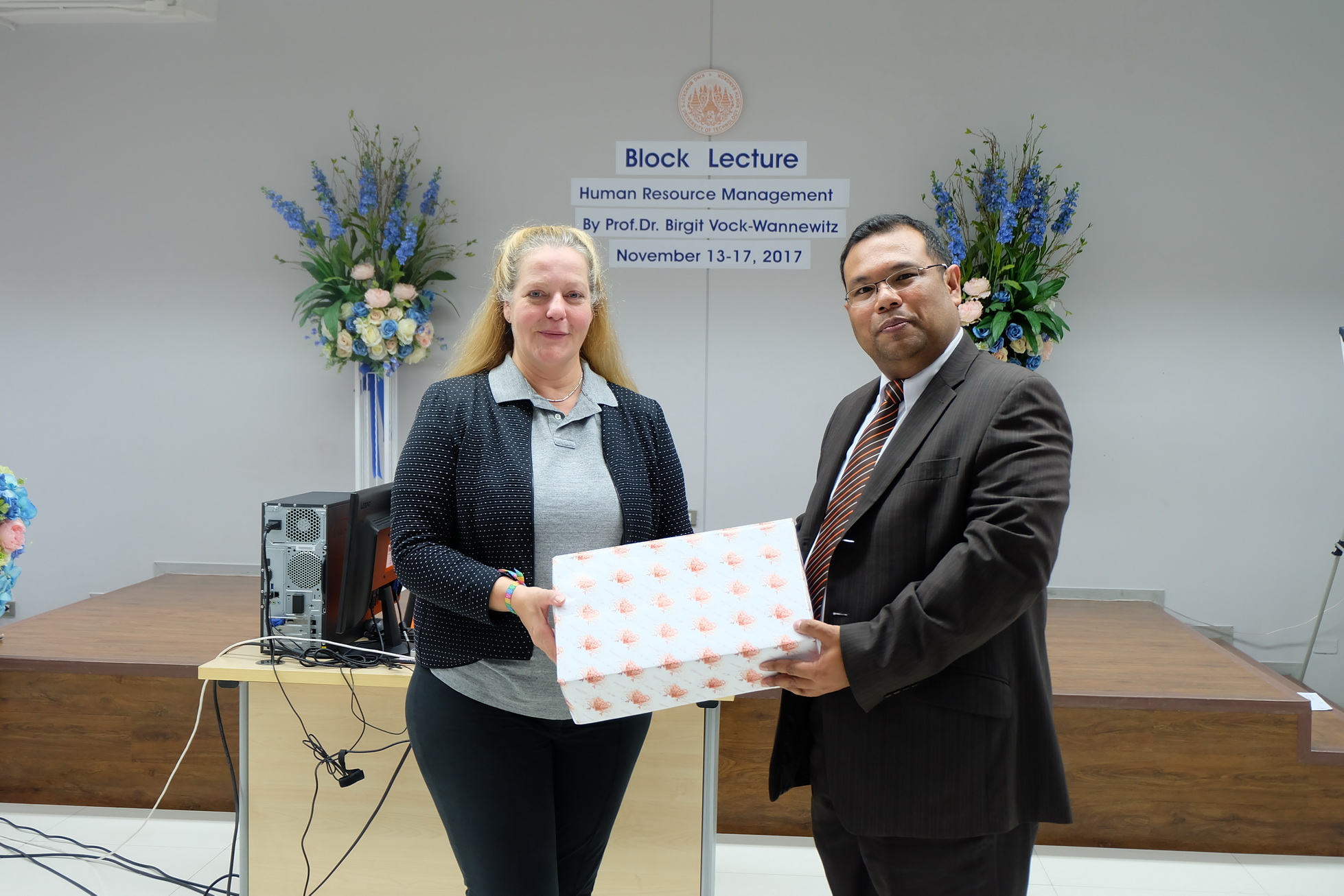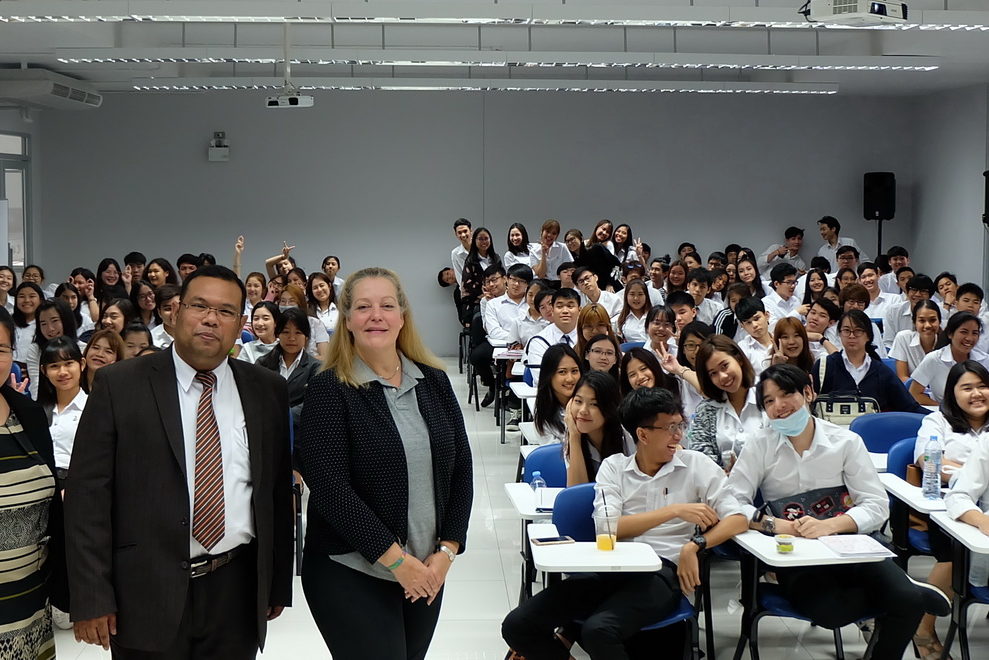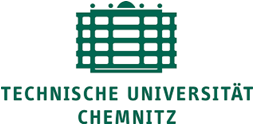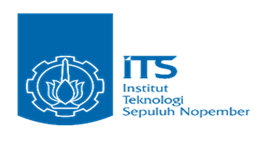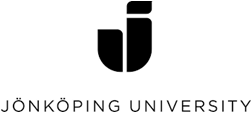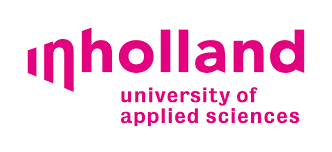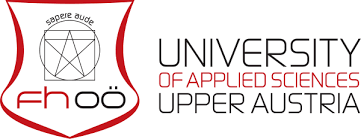Co-Operative Education
Increased economic and industrial competitions domestically and internationally has led to a rapid growth of Thai industries. The International College of King Mongkut’s University of Technology North Bangkok (KMUTNB) aims at cultivating well-equipped graduates for the expanding labor market. With the incorporation of co-operative education program into the curriculum, students receive opportunities to put their classroom knowledge into practice through a 15-week relevant work experience. Co-operative education is a program that combines classroom learning with on-the-job training. The program has been widely accepted and adopted across the globe for the past 50 years. At International College, students must enroll in co-operative education program to enhance their job skills and increase post-graduation job opportunities.
Advantages to the student
1. Gaining real-world work experiences in the field of study
2. Receives opportunities to work with many professionals and develop interpersonal skills
3. Builds self-responsibility, leadership, teamwork, and communication skills
4. Bridges the gap between classroom theories and real-world practices
5. Increases employment opportunities upon graduation
Advantages to employers
1. Receive an additional manpower for new tasks and short-term projects
2. Receive opportunities to train prospective employees
3. Increase cost-effectiveness and cost-efficiency of recruitment and training
4. Enhance the company relations with the university to exchange knowledge and provide valuable feedback about the curriculum and the training for students
5. Increase an opportunity for cooperative research between the company and the university
6. Assist in a labor force development to satisfy labor market needs
7. Increase company presence on campus
8. Enjoy tax reduction benefits
Factors for success in co-operative education
The success of co-operative education program depends on five main factors: student quality, employer willingness, supports from university, quality supervision, and supports from government.
Scope of Work
Working period: 16 weeks
Working days: Monday – Friday (Not counting Saturday and Sunday)
Responsibilities:
- Get to know the company
- Understand the company’s culture
- Attend all the trainings organized by the company
- Work in a relevant position related to the field of study
- Carry out a special project or routine work activities assigned by the company
- A special project
- Identify potential project
- Create a project outline
- Estimate the budget needed
- Write an action plan
- Write a project proposal
- Routine work activities
- Understand the job responsibilities and roles
- Study the workflow
- Perform assigned tasks in an effective manner
- Observe and identify issues
- Propose possible solutions
- A special project
- Finish the special project or complete assigned tasks in an effective manner
- Collect necessary information and write a final report toward the end of the working period, giving details reflects working experience.
- Submit a final draft of the report to a mentor for approval before giving presentation to the company and the lecturers
Co-Operative Education Networks
